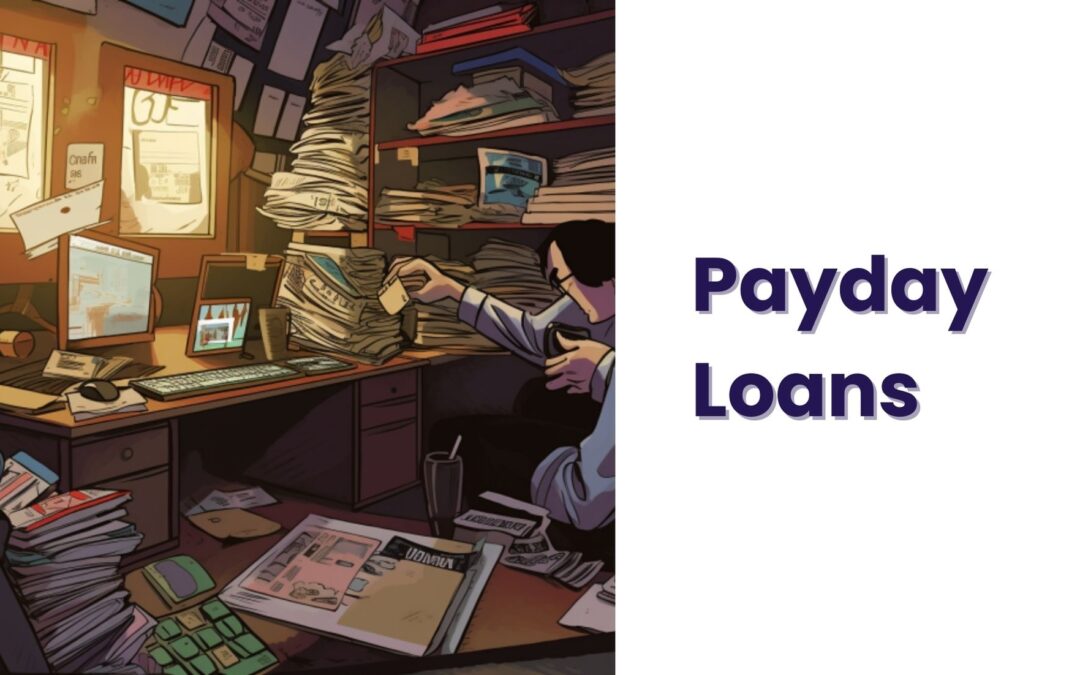In today’s fast-paced world, financial emergencies can arise when you least expect them. Whether it’s a medical bill, car repair, or any unforeseen expense, the need for quick cash can be urgent. In such situations, payday loans offer a viable solution for individuals in need of immediate funds.
This article will delve into the world of payday loans, explaining how they work, their pros and cons, eligibility criteria, and much more. To invest in gold, download the Jar App.
What Are Payday Loans?
Payday loans are short-term, unsecured loans designed to provide individuals with quick access to cash when they are facing financial emergencies. They are often referred to as “paycheck advances” or “cash advances.” These loans are typically small in amount and are intended to be repaid on the borrower’s next salary day.
How Do Payday Loans Work?
These loans work by allowing borrowers to access a small amount of money quickly. The process is relatively simple. Borrowers apply for the loan, providing necessary documentation and personal information. The lender then assesses the borrower’s eligibility, including their income, and if approved, disburses the loan amount. Repayment is usually required within a few weeks, along with interest and fees.
The Pros of Payday Loans
- Quick Access to Funds: Payday loans provide a speedy solution for those facing urgent financial needs.
- No Credit Check: Most payday lenders do not require a good credit score, making them accessible to a wide range of borrowers.
- Easy Application: The application process is simple and can often be completed online.
- No Collateral Required: Payday loans are unsecured, so borrowers do not need to provide collateral.
The Cons of Payday Loans
- High Interest Rates: Payday loans come with relatively high-interest rates, making them expensive compared to traditional ones.
- Short Repayment Period: Borrowers must repay the loan quickly, which can be challenging for some.
- Debt Cycle: If not managed responsibly, they can lead to a cycle of debt.
- Predatory Lenders: Some lenders engage in predatory practices, taking advantage of vulnerable borrowers.
Eligibility for Payday Loans
To be eligible for this, a borrower typically needs to be of legal age, have a regular source of income, and provide proof of identity. Lenders may have specific requirements, so it’s essential to check with individual providers.
Application Process
Applying for a payday loan is straightforward. Borrowers complete an application, which often includes personal information, proof of income, and a bank account. Many lenders offer online applications, making the process even more convenient.
Interest Rates and Fees
Payday loans often come with high-interest rates and additional fees. The annual percentage rate (APR) can be substantial, so borrowers should carefully read and understand the terms before proceeding.
Repayment
Repayment is usually due on the borrower’s next payday. It typically involves paying back the principal loan amount, plus interest and any associated fees. Some lenders may offer extended repayment options, but this often comes at an additional cost.
Alternatives
Before considering such a loan, it’s wise to explore alternatives, such as personal loans, credit cards, or borrowing from friends and family. These options may offer more favorable terms and lower costs.
Legal Regulations
Payday loans are subject to regulations that vary by state and country. Some regions have imposed caps on interest rates and fees, while others have prohibited payday lending altogether. It’s crucial to be aware of the legal framework in your area.
These loans should be a last resort when facing a financial emergency. If no other options are available, they can provide a short-term solution to pressing financial needs.
Tips for Responsible Borrowing
For those considering payday loans, responsible borrowing is key. This includes only borrowing what is necessary, understanding the terms, and having a clear plan for repayment.
Bottom Line
In summary, payday loans are a quick cash solution designed to help individuals in financial emergencies. While they offer advantages such as accessibility and speed, they also come with high costs and potential risks. Before applying for such a loan, it’s crucial to weigh the pros and cons, explore alternatives, and ensure responsible borrowing practices.
FAQs
1. Are payday loans the same as personal ones?
No, these loans are short-term loans with higher interest rates, while personal loans are typically long-term and have lower rates. They serve different purposes.
2. Can I get a payday loan with bad credit?
Yes, many payday lenders do not require a good credit score, making them accessible to individuals with poor credit histories. They focus on your income and ability to repay.
3. What is the typical repayment period for a payday loan?
These loans are typically due on the borrower’s next salary day, which is usually within a few weeks. Some lenders may offer extensions, but this can lead to higher costs.
4. Are payday loans legal everywhere?
These loan regulations vary by location. Some areas have banned payday lending, while others have imposed restrictions or capped interest rates. Research your local laws.
5. How can I avoid the debt cycle with payday loans?
To avoid a debt cycle, only borrow what you need, have a clear repayment plan, and be cautious of rolling over the loan. Responsible borrowing is key to prevent ongoing financial issues.

